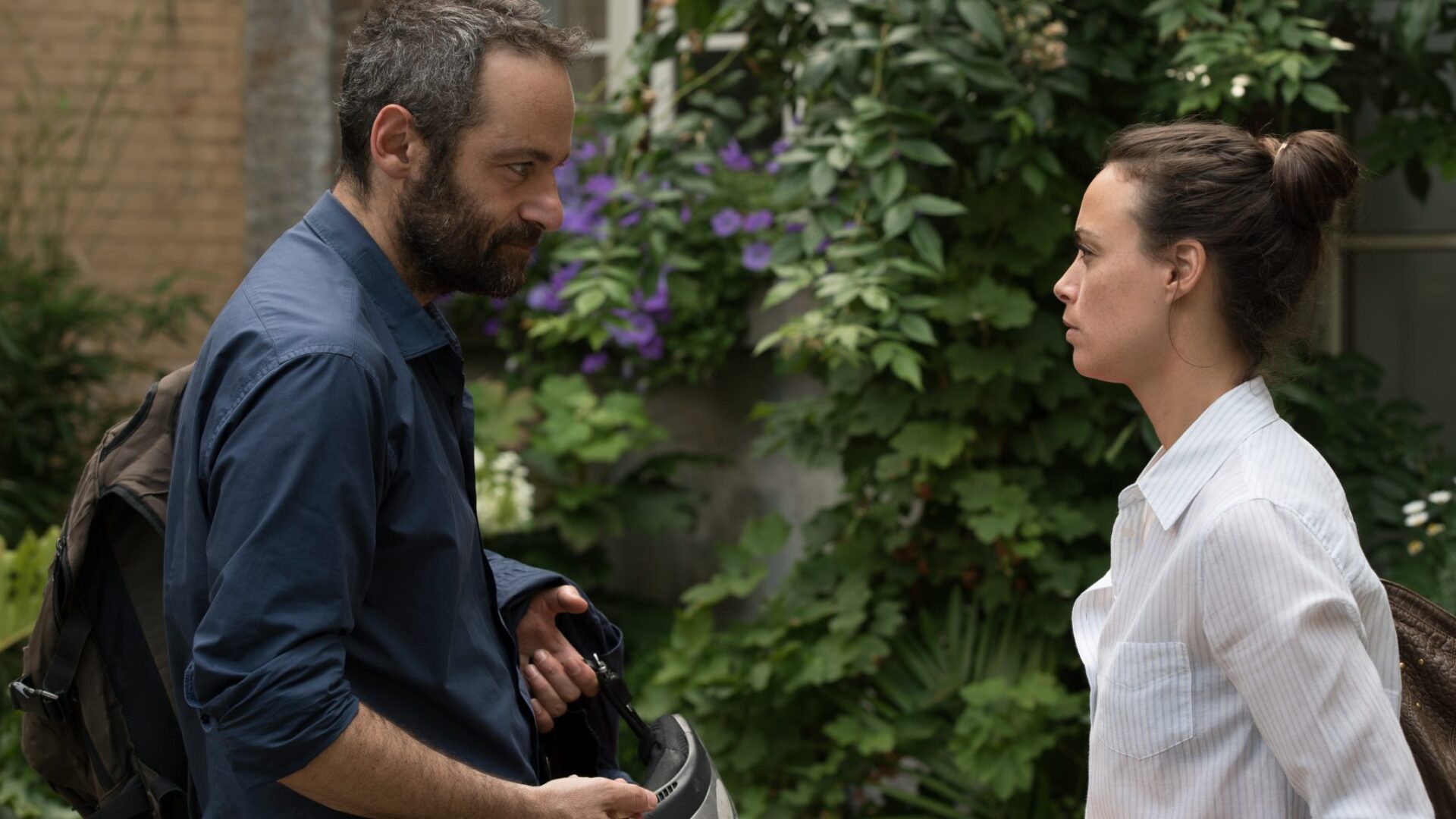Break-ups are hard. Divorce is harder. Divorce when kids are in the picture is the absolute worst. There’s no getting around how incredibly complicated a romantic separation can be when two people are forever bound by their children, which is precisely the angle through which After Love approaches its primary domestic conflict. This is a film that looks at life through a matter-of-fact lens to demonstrate that its petty dramas may hold the greatest stakes in determining how one must move forward after one’s life is irrevocably altered.
Shot almost entirely within the confines of one house, After Love picks up on Marie (Bérénice Bejo), arriving home with her twin daughters to find that their father, Boris (Cédric Kahn), is there waiting for them. Marie is frustrated because this is not his agreed-upon day to spend with the children, and his desire to have fun with his daughters undermines her parental need to establish ground rules and teach responsibility. This serves as our introduction to a continuing spiral of complicated feelings that neither party can fully extricate themselves from, primarily because they both love and want what’s best for their girls.
What further complicates things is how Boris manipulates his situation by contesting the value of their home and what he is entitled to, refusing Marie’s offer not because he wants fair value but because he doesn’t want this chapter of his life to end. Furthermore, this manipulation leads Marie to suspect that Boris is making sympathetic inroads with her mother Christine (Marthe Keller), even as every act of compassion on Christine’s part is wholly her own. Marie and Boris are two people who know each other very well and, justifiably or not, have come to have severe distrust for one another, and that antagonism is palpable every time they so much as pass a glance, due in no small part to Bejo’s and Kahn’s superb performances.
What’s especially remarkable, though, is how Joachim Lafosse highlights how the remnants of Marie’s and Boris’s love still remain in the form of their children. Even if Marie doesn’t want to be with Boris anymore, there are constant reminders of when they were a happy family unit together, and missing that feeling is very nearly conflated with loving Boris once again. The difficult thing about breaking up is learning how to move on, and After Love questions how possible that is when one’s former partner will forever be a part of one’s life, no matter what.
After Love‘s final moments are perhaps a bit too concretely final for the open-ended questions the film presents, but overall the narrative is as tight and gripping as its modest setting and cast can afford. It exemplifies the power that our past loves can have over us, whether we are manipulated by them or acting in response to perceived manipulations. This is a film of harsh truths and humanistic empathy, finding a middle ground between love turned to hate and tolerance so that one may more fully love one’s children. There are no easy answers, which is what makes After Love so powerful.













